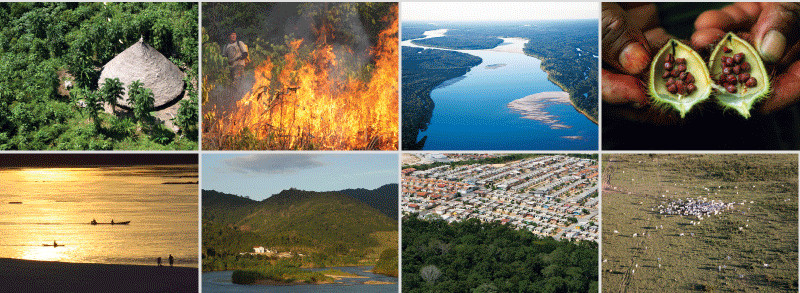HUGE news: we just secured a meeting with EU Commissioner Vestager -- the Commissioner who has the power to scrap the Bayer-Monsanto merger once and for all. This is massive. And it shows all your hard work over the last several years is paying off. This is a critical moment to stop this dangerous mergerthat would put control of the majority of our food in the hands of one massive corporation -- but we only have 3 days. With your help, we're going to blanket key news sites read by EU insiders and Commissioners like Vestager with ads ahead of our meeting showing that everyday people like you and I are firmly against this merger. Donating just takes a moment – use Paypal or your card. Will you chip in $1 to stop the Bayer-Monsanto merger? This major opportunity is only happening because of people like you. Bayer and Monsanto never bargained on this merger being challenged as ferociously as SumOfUs members like you have fought it. Over the last two years, you have shifted the political climate of this merger from being a shoo-in to being on the verge of collapse. That's why we can’t stop now. Tuesday’s meeting could be a vital turning point. If this merger goes through, we would see one mega-corporation in control of the vast majority of our food supply, while promoting the use of dangerous bee-killing pesticides. We may not have the financial might of Bayer and Monsantol but we have proven that if all of us chip in a little bit we can make a major difference. A gift now will allow us to keep the pressure high so that Commissioner Vestager won’t be able to ignore us. Donating just takes a moment – use Paypal or your card. Please chip in $1 to stop the Bayer-Monsanto merger. SumOfUs members have been instrumental in fighting this merger. Thanks to your generous donations we put ads in key newspapers, hired some of the world’s top legal minds to prove the disastrous effects of the could-be merger, commissioned a lobbyist in Washington D.C., and thousands of you sent postcards to Vestager -- which got her attention and even a reply. With just 3 days before this meeting, we need your help again to ensure that we make the most of this historic opportunity with the person with the power to end this merger from hell once and for all. A special gift from you now will allow us to flood key news sites that EU Commissioners and insiders like Vestager visit with powerful ads that let decision makers know that the people do not want this merger to go through. Donating just takes a moment – use Paypal or your card. Please, will you chip in $1 to stop the Bayer-Monsanto merger? Thanks for all that you do, Anne, Emma, Amelia and the team at SumOfUs PS: We would have never gotten this far in stopping the merger without you, Ricardo. Thank you for everything you have done. If there is something you want me to say when meeting Vestager, please email me at hallo@sumofus.org. And thanks again for donating whatever you can. More information: Vestager ramps up pressure on Bayer-Monsanto mega-merger, Politico, 15 December 2017 Why Bayer's massive deal to buy Monsanto is so worrisome, Vox, 16 September 2016 
|
Artigos científicos, ativismo e conscientização na preservação e manutenção do meio ambiente e das espécies em seus habitats naturais para o equilíbrio dos ecossistemas. Scientific articles, activism and awareness in the preservation and maintenance of the environment and species in their natural habitats for the balance of ecosystems.
segunda-feira, 26 de fevereiro de 2018
I need your help for this meeting
Orcas are starving. Bring down the dams!
Friends,
Endangered Southern resident orcas are slipping tragically closer to extinction–just 76 remain. These orcas are starving and need us to act.
Southern resident orcas rely on salmon to exist. These salmon have themselves become endangered due to overfishing, loss of habitat and hydropower dams. On top of that, the orcas are impacted by pollution, particularly PCBs, ship collisions, oil spills, and marine noise.
Salmon supplies are so short, and the other impacts are so severe, that half of the baby orcas born between 2014 and 2016 died from starvation, and not a single orca was born in 2017. The situation is dire and our window of time to effect change is very short.
The Endangered Species Coalition is working with our partner organizations and activists to save these orcas: we are advocating for the removal of four outdated lower Snake River dams that are stopping salmon from migrating and causing the Southern resident orcas to slowly starve.
This urgent and catastrophic situation may only be resolved through pressure on decision makers that can bring down these dams and address their other threats. That is why the Endangered Species Coalition is meeting this challenge. With hundreds of member organizations and tens-of-thousands of activists like you, we can harness the power of grassroots energy and direct it to saving species. We have staff on the ground in Washington working to bring these voices together to save orcas before it is too late. Please support this work with a 100% tax-deductible donation today.
Thank you for your commitment to wildlife and wild places.
Sincerely,

PS. Links not working? Please support our campaign to save Southern resident orcas and other endangered species with a donation at this URL: https://secure.actblue.com/donate/srkw
|
LAWSUIT: Right whales on the brink

Dear folks,
It’s tragic. Last month, another critically endangered North Atlantic right whale was found dead – entangled in fishing gear – off the coast of Virginia.
The situation is dire – and without our immediate intervention, the species will likely become functionally extinct in the next 20 years. That is why Defenders is suing the National Marine Fisheries Service (NMFS) for failing to protect right whales from fatal entanglements in fishing lines.
Fewer than 450 North Atlantic right whales remain, and this latest death comes on the heels of one of the deadliest years for right whales since the days of commercial whaling. In 2017, at least 17 of these critically endangered whales died – and a majority of their deaths were attributed to deadly entanglements in fishing gear.
Entanglement in fishing gear is the primary threat to the survival of right whales. In fact, scientists estimate that 83 percent of right whales have experienced entanglement in fishing gear at least once in their lifetimes.
A right whale can die within minutes, drowning as it struggles to free itself – or it can die slowly and painfully over many months from injury, infection, or starvation.
It is a horrific end that no animal should have to suffer.
But the harms of entanglements don’t stop there. Scientists have learned that stress from chronic and long-term entanglements reduces female whales’ reproductive rates. Sadly, 2017 was also one of the worst on record for calf births – with only five recorded.
The math is clear: right whale deaths are far outpacing their birth rates and it’s putting them on an escalating trajectory toward extinction.
But their fate is not yet sealed. Defenders is pulling out all the stops to ensure a future for right whales and other imperiled species. We are mounting a defense for wildlife in courtrooms across the country.
Sincerely,
 |
Jamie Rappaport Clark
President, Defenders of Wildlife |
Defenders of Wildlife | 1130 17th St NW, Washington, DC 20036 | defenders.org
 Defenders of Wildlife is a national, nonprofit membership organization dedicated to the protection of all native wild animals and plants in their natural communities.
Defenders of Wildlife is a national, nonprofit membership organization dedicated to the protection of all native wild animals and plants in their natural communities.Photo credit: Right Whales (c) NOAA Florida Fish & Wildlife
© Copyright 2018 Defenders of Wildlife
Coordenadora do ISA fala sobre o Novo Código Florestal que terá julgamento retomado nesta semana
| |||||||||||||||||||||||||||||||||||||||||||
|
| ||||||||||||||||||||||||||||||||||||||||||
| |||||||||||||||||||||||||||||||||||||||||||
| |||||||||||||||||||||||||||||||||||||||||||
 | |||||||||||||||||||||||||||||||||||||||||||
Edições anteriores: segunda-feira, 26/02 | quinta-feira, 22/02 | quarta-feira, 21/02 | terça-feira, 20/02 | segunda-feira, 19/02
sexta-feira, 23 de fevereiro de 2018
Watch This: Beetles with boiling butts, the problem with tiger selfies, and more
|
| |||||||
| |||||||
 | |||||||
|
| ||||||||||||||||
|
| ||||||||||||||||
|
|
| ||||||||||||||||
|
| ||||||||||||||||
|
| ||||||||||||||||
|
|
|
Assinar:
Postagens (Atom)




























